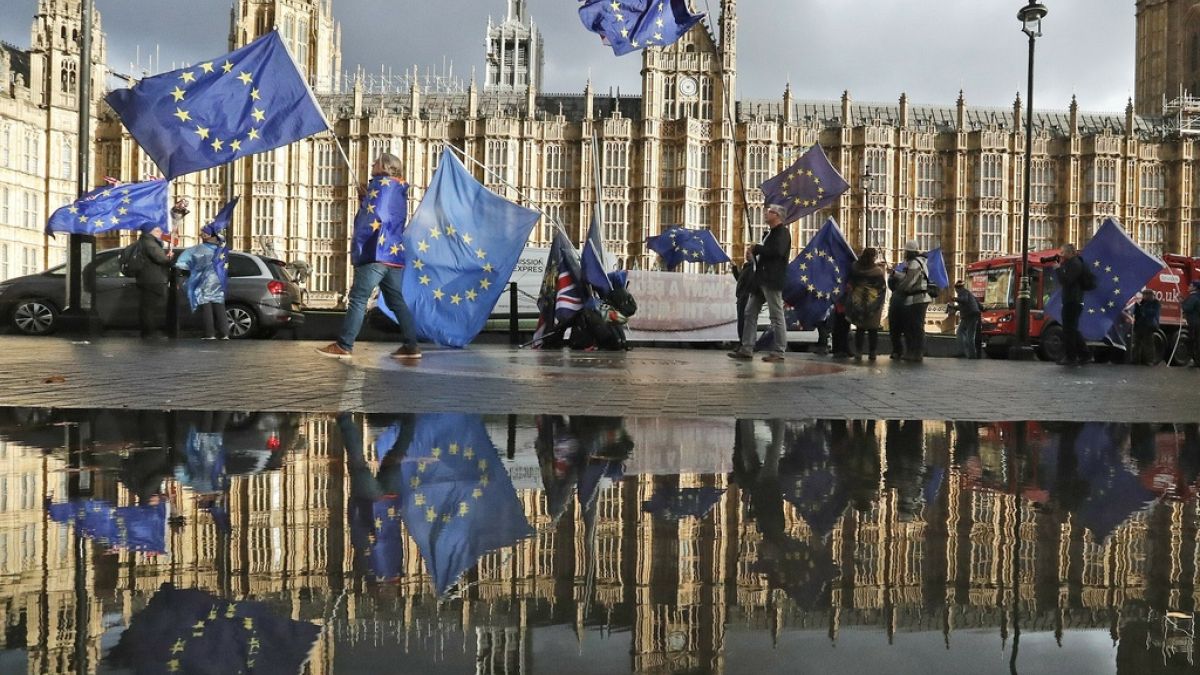Brexit impact keeps getting worse, economists warn

A new study suggests that the economic slump caused by the change in UK-EU relations post-Brexit is not just a short-term hiccup, but likely to persist.
The Brexit deal has caused a sharp decline in UK-EU trade and is likely to continue getting even worse, a group of economists has warned.
A new report released on Monday by Aston University Business School says that the Trade and Cooperation Agreement (TCA) signed by London and Brussels as the two sides fully cut ties has “profound and ongoing stifling effects” on the economy.
“The study highlights that the negative impacts of the TCA have intensified over time, with 2023 showing more pronounced trade declines than previous years,” the Birmingham-based economists said in the report. “This suggests that the transition in UK-EU trade relations post-Brexit is not merely a short-term disruption but reflects deeper structural changes likely to persist.”
They added that the trends indicate “worsening trade dynamics” over the 2021-2023 period compared to the initial post-TCA phase.
The UK has been buffeted by economic hardship ever since it voted to leave the EU in 2016 and subsequently exited the bloc in 2020. This was soon compounded by the global and financial shockwaves caused by the COVID-19 pandemic and Russia’s full-scale invasion of Ukraine.
Between 2021 and 2023, monthly data showed a 27% drop in UK exports and a 32% drop in imports to and from the EU, compared to how things would have been had Brexit not happened, according to the Aston report.
Things don’t improve much when looking at the figures on a yearly basis: exports declined by 17% and imports by 23%.
“The analysis reveals a heavily disrupted and weakening UK-EU supply chain post-TCA, evident across consumer, intermediate, and capital goods,” the report says. It notes, however, that a handful of sectors saw an increase in exports — namely tobacco, railway and aircraft.
The opposite is true for the likes of the agrifood, textile and material-based manufacturing sectors, which are among the worst affected.
“Notably, (edible fruit and nuts) experienced the most dramatic decline in UK export value, plummeting by 73.46%,” the economists said.
The Brexit deal has also impacted the remaining 27 EU countries, but to different extents.
UK exports to Belgium and Ireland saw milder reductions, according to the report, while this was more substantial in Germany, Spain and Greece.
For UK imports, the Netherlands, Germany and France saw significant drops of 51%, 32% and 23% respectively, the economists said.
“Smaller economies, however, showed positive effects, indicating increased UK imports,” they added.
Change on the horizon?
The report urges the UK government to seek ways to stabilise and enhance the country’s economy.
It suggests opening sector-specific negotiations with the EU to try and mitigate the effects on the sectors worst affected by Brexit and the TCA and using new technology to streamline customs procedures.
It also recommends that the UK reconfigure its supply chains to enhance resilience and competitiveness.
While the EU has been less than enthusiastic about changing the Brexit deal and reopening negotiations, there may be scope for change.
The TCA contains what’s known as “review clauses”, which set dates to review and assess the implementation of the entire agreement every five years. The first review is due in 2026.
The UK’s new Labour Prime Minister Keir Starmer has ruled out any significant changes, such as rejoining the EU’s single market and customs union. Yet he has vowed to reduce post-Brexit red tape and “reset” relations with the UK’s European partners, which were left in tatters by the previous Conservative government.
The scheduled TCA reviews may give him the opportunity to make significant changes to the deal, but it remains to be seen how far he would go.
Related
A New Book Argues That What Happens in Europe Doesn’t…
Remaking the World: European Distinctiveness and the Transformation of Politics, Culture, and the Economy by Jerrold Seigel “No issue in world
Poland plans military training for every adult male amid growing…
Poland’s prime minister, Donald Tusk, has said his government is working on a plan to prepare large-scale military training for every adult male in response t
2025 European Athletics Indoor Championships: Ditaji Kambundji secures women’s 60m…
Switzerland’s Ditaji Kambundji walked away from the 2025 European Athletics Indoor Championships in Apeldoorn on 7 March with much more than her first Europea
Takeaways from the EU’s landmark security summit after Trump said…
BRUSSELS (AP) — European Union leaders are trumpeting their endorsement of a plan to free up hundreds of billions of








